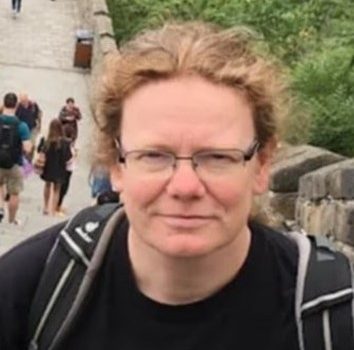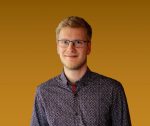OptoNet-Workshop · Tolerancing
Concepts · Tools · Methods
The purpose of this course is to present concepts, tools, and methods of the tolerancing process from assigning initial tolerance values, performing sensitivity studies, developing alignment strategies including compensator choice, generating error budgets to performing Monte Carlo analysis. That will help attendees determine optimal tolerances for optical systems. Detailed topics in the course apply to different types of systems being developed – from low-end single element to complex systems like microscopic or photographic lenses. The importance of tolerancing throughout the design process is discussed in detail, including determining robustness of the specification and design for manufacture and operation.
Examples are included to help researchers, designers, engineers, and technicians practically apply the concepts to plan, design, engineer, and build high-quality cost-competitive optical systems.
Target audience
- For researchers, designers, engineers, and technicians
- The workshop will be held in English.
Prior knowledge & requirements
- basic understanding of optical systems, optical design concepts and optical performance criteria
- examples will be shown in Zemax OpticStudio
- participants should bring laptop with working Zemax Optic Studio & Excel
AGENDA · DAY 1 (February, 28) · 13:30 – 16:00
| Time | Topic & Content | ||||||||||||||||||||||||||||||||||||||
| 13:30 | Introduction
| ||||||||||||||||||||||||||||||||||||||
| 14:00 | Process & error budget
| ||||||||||||||||||||||||||||||||||||||
| 14:15 | Tolerance types
| ||||||||||||||||||||||||||||||||||||||
| 15:15 | Coffee break | ||||||||||||||||||||||||||||||||||||||
| 15:30 | Optical datasheet
| ||||||||||||||||||||||||||||||||||||||
| 16:00 |
AGENDA · DAY 2 (February, 29) · 9:00 – 16:30
Referent profiles |
 Kristina UhlendorfLinkedIn is head of the Optical Engineering group at Magic Leap Inc. She received her MS and PhD in Physics/Optics from the Friedrich-Schiller University Jena, Germany. After graduating, she spent 11 years at Carl Zeiss designing precision optical assemblies such as mask/wafer inspection systems, photographic lenses and projection optics. Before she joined Magic Leap in 2021 she worked at the Research School of Astronomy & Astrophysics, ANU Canberra, Australia; Jenoptik Optical Systems GmbH, Germany and Jabil Optics GmbH, Germany. She has experience designing a wide range of optical systems from UV to IR, endoscopic lenses to telescopes with a strong focus on tolerancing and manufacturability.
Kristina UhlendorfLinkedIn is head of the Optical Engineering group at Magic Leap Inc. She received her MS and PhD in Physics/Optics from the Friedrich-Schiller University Jena, Germany. After graduating, she spent 11 years at Carl Zeiss designing precision optical assemblies such as mask/wafer inspection systems, photographic lenses and projection optics. Before she joined Magic Leap in 2021 she worked at the Research School of Astronomy & Astrophysics, ANU Canberra, Australia; Jenoptik Optical Systems GmbH, Germany and Jabil Optics GmbH, Germany. She has experience designing a wide range of optical systems from UV to IR, endoscopic lenses to telescopes with a strong focus on tolerancing and manufacturability.
 Tobias HönleLinkedIn studied laser and optotechnologies at the University of Applied Sciences in Jena, Germany. Afterwards, he gained experience in optical design, as well as the tolerancing of optical systems in various application areas, especially for systems with aspherical plastic lenses, in different positions at Carl Zeiss, Fraunhofer IOF and Jenoptik in Jena. Since 2022, he has been working on the development of AR glasses at Magic Leap, Inc. and is leading the optical design team there since July 2023.
Tobias HönleLinkedIn studied laser and optotechnologies at the University of Applied Sciences in Jena, Germany. Afterwards, he gained experience in optical design, as well as the tolerancing of optical systems in various application areas, especially for systems with aspherical plastic lenses, in different positions at Carl Zeiss, Fraunhofer IOF and Jenoptik in Jena. Since 2022, he has been working on the development of AR glasses at Magic Leap, Inc. and is leading the optical design team there since July 2023.
Venue
- The workshop will take place in Jena, the city of Ernst Abbe and Carl Zeiss who laid the foundation for modern optics 150 years ago. Since then, the science city Jena has been shaped by innovative, light-based technologies. Enjoy the spirit in the young university town surrounded by a magnificent landscape and well-known sights of European history.
- The venue is the SCALA Sky Conference on top of the Jentower.
- With professional technical equipment and a pleasantly undisturbed environment in an innovative dynamic environment, the best conditions for concentrated work are created.
Registration
- The registration is open. OptoNet members benefit from a special price.
- Conference materials, documents and exercises are included in the conference fee.
- Participants are kindly expected to cover the costs for their individual travel and accommodation.
- Please bring your own notebook with working Zemax Optic Studio & Excel.
Cancellation Policy
- Cancellations must be made by email and are free of charge until 20 January.
- No refunds will be made for cancellations after January 20 or for no-shows.
- In case a participant would not be able to attend the training, a substitute can be accepted. Training will be confirmed as soon as the minimum number of participants has been reached. All participants will receive a final confirmation. Training fees are reimbursed in case of cancellation due to force majeure or due to speakers preventions. No compensation will be paid for any additional costs incurred.
Accomodation Recommendation
We recommend the following hotels near the venue:
- Hotel SCALA › chic business hotel with a fantastic view over the city of Jena
- Hotel Zur Noll › pleasant downtown hotel with Thuringian cuisine
- Hotel Vielharmonie › small individual hotel for city tourists
- Hotel Eulensteins › modern boutique hotel with ecological orientation
Note
By submitting this registration form, you agree that your name will be included on a list of participants, which will be available to the other participants and to the co-organizer. Furthermore, you agree that pictures of the event can be shown on our websites and our social media accounts, unless you explicitly object before the event.
Event Type
Location
SCALA Sky Conference
Leutragraben 1
07743 Jena
Germany
Contact
OptoNet e.V.
Anke Siegmeier
03641 327 92 91
ed.anej-tenotpo@ofni
Book this Event
Bookings are no longer possible for this event.